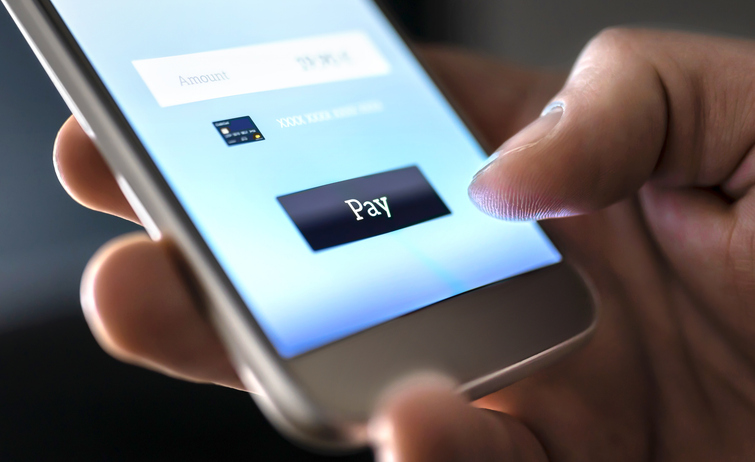The Risks of Storing Money in Payment Applications
In today's fast-paced digital world, payment applications have become increasingly popular for transferring money quickly and conveniently. While these apps like Venmo, Cash App, and PayPal offer a seamless way to send and receive money, they come with a set of risks that every user should be aware of. Connor Tomasko, a 31-year-old freelance software consultant from Chicago, highlights these risks and emphasizes the importance of making informed financial decisions.
Convenience vs. Risk: The Payment App Dilemma
Tomasko has always approached credit cards with caution, educating herself on financial management over the years. She has noticed a troubling trend: many individuals engage in poor practices when using payment applications. Despite appreciating the convenience these apps offer—often requiring just a recipient's username to facilitate transfers—she recognizes that maintaining funds within these applications can lead to significant financial drawbacks.
The Dangers of Holding Money in Payment Apps
Tomasko’s primary concern is that funds held in payment applications are not typically insured like traditional bank accounts. According to the Consumer Financial Protection Bureau (CFPB), funds in platforms such as Venmo and Cash App generally lack the same deposit insurance protection, except in certain cases. "While digital payment applications are becoming more common as alternatives to traditional banking services, they do not offer the same level of protection to ensure the safety of funds," stated CFPB Director Rohit Chopra in a recent bulletin.
In 2022, the estimated transaction volume on various payment applications reached a staggering $893 billion, with projections indicating an increase to $1.6 trillion by 2027. A survey from the Pew Research Center found that over 75% of adults in the United States have used one of the widely used payment applications, with 85% of consumers aged 18 to 29 reporting usage of services like PayPal, Venmo, Apple Cash, Google Pay, or Zelle. While the appeal of these applications is undeniable, the risks associated with keeping money in them often outweigh the convenience.
What Users Should Consider
Tomasko advocates for a proactive approach to managing finances. “I always emphasize the importance of high-yield savings accounts,” she remarked. However, for those in cash-intensive professions like bartending, the challenge often lies in finding a suitable place to deposit their earnings.
The Case for High-Yield Savings Accounts
One significant drawback of keeping money in payment applications is the missed opportunity to earn interest through high-yield savings accounts. Courtney Alev, a consumer advocate at Credit Karma, cautioned against leaving money in peer-to-peer payment accounts for convenience. "While it may seem practical to keep funds available for settling dinner bills with friends, there are several reasons we advise against this."
The CFPB's findings echo this sentiment, indicating that payment applications typically do not offer deposit insurance, unlike FDIC-insured banks, which protect depositors against the loss of insured deposits up to at least $250,000 in the event of a bank failure. Although funds in payment applications may appear similar to those in deposit accounts, they are generally not insured until transferred back to an FDIC-insured bank or credit union.
Related: Cybersecurity Awareness Month!
When Can Payment Applications Offer Insurance?
There are specific circumstances under which payment applications may provide deposit insurance. For instance, with Cash App, funds become eligible for insurance when users link their accounts to a Cash App debit card. Venmo offers coverage for funds added through direct deposit or check cashing. However, the CFPB has indicated that funds held in payment applications pose a significantly greater risk of loss for consumers compared to those deposited in insured bank or credit union accounts.
Recommendations for Consumers
Given the increasing risks associated with storing money in payment applications, the CFPB advises consumers to transfer their balances back to federally insured accounts. Instead of keeping funds in payment apps, consider seeking a high-yield savings account to optimize your personal finances. "Leaving money in those accounts means forgoing potential interest from a high-yield savings account. Over time, that interest can accumulate significantly," Alev emphasized.
Tomasko practices what she preaches by promptly transferring any received payments out of the applications. She opts for the ‘1-3 business day’ transfer option when using Venmo to avoid fees. Cash App also offers a feature that allows users to automatically transfer funds back to their bank accounts, which she utilizes regularly. “With Venmo, I actively transfer payments out each time I receive them,” she shared.
As payment applications continue to gain popularity, it’s essential for users to remain informed about the risks involved in storing money within these platforms. While they offer undeniable convenience, the potential for lost funds and missed financial opportunities cannot be ignored. By prioritizing financial education and opting for safer alternatives like high-yield savings accounts, users can protect their hard-earned money and make the most of their financial opportunities. As Tomasko wisely advises, “Always consider the bigger picture when it comes to managing your finances.”









